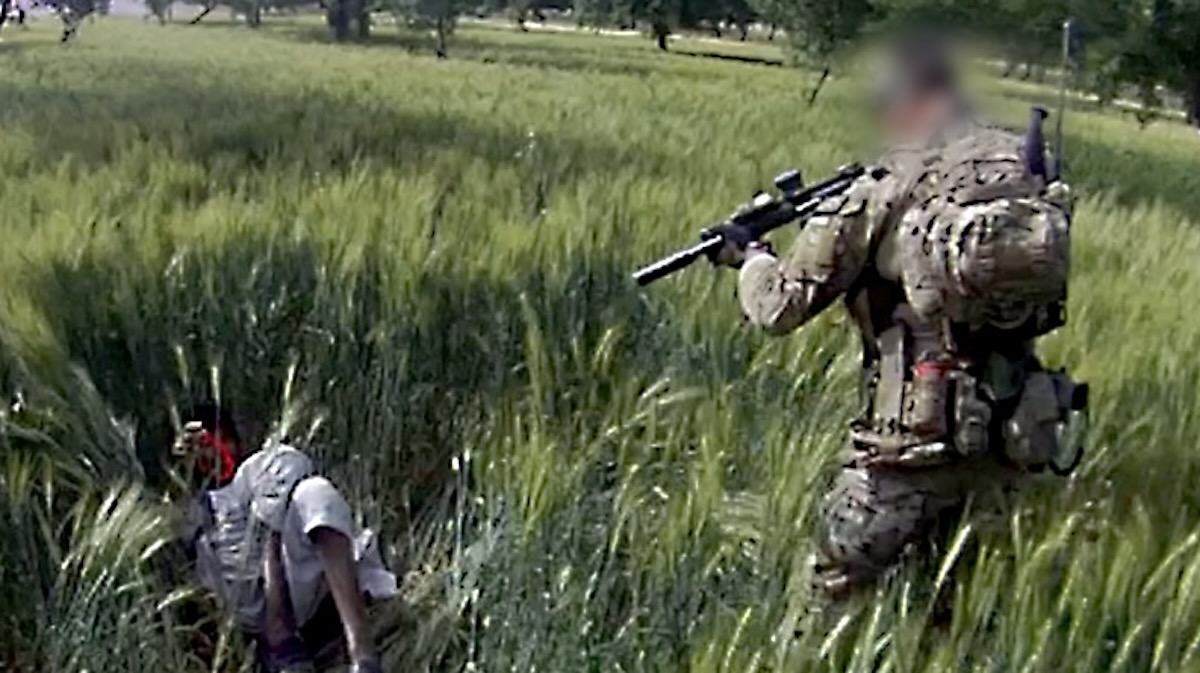
A public inquiry into British war crimes has heard that the SAS continues to believe it has a “golden pass” from the British government “allowing them to get away with murder”.
The inquiry is examining British military raids in Afghanistan between 2010 and 2013, follows years of media revelations of murder and cover up by the SAS.
The inquiry released material summarising seven closed hearings with members of ‘Special’ Crown Forces - the SAS (Special Air Service) and the SRR (Special Reconnaissance Regiment), both of whom have also operated for several decades in the north of Ireland.
One senior SAS figure admitted that the force was carrying out “executions” of innocent civilians and covering them up.
Asked by the inquiry during the closed hearings whether he stood by his assertion that the SAS’s actions amounted to murder, the officer replied: “Indeed.”
In a situation analogous to the use of state secrecy in the north of Ireland, only the inquiry team and representatives from the British Ministry of Defence have been allowed to attend the closed hearings. The public, members of the media, and lawyers for the bereaved families are not allowed to be present.
Material released this week offered a summary of the testimony from these hearings. It showed that senior officers told the inquiry of deep concerns that the regiment was driven by ‘kill counts’ – the number of killings they could achieve in each operation, regardless of the identity of the victims.
Another senior officer who gave evidence was asked whether he stood by his concerns in 2011 that the SAS was carrying out ‘extra-judicial killings’ of civilians who were ‘potentially’ linked to their perceived enemy, who now form the current Afghanistan government.
“I thought and think that on at least some operations [the SAS] was carrying out murders,” he said.
A junior officer who also gave evidence to the inquiry behind closed doors described a conversation in which a member of the SAS who had recently returned from Afghanistan told him about a pillow being put over the head of someone before they were killed with a pistol.
He confirmed that some of those killed by the SAS had been children, according to the conversation he relayed. Asked by the inquiry counsel if he meant some of those killed would be as young as 16, he replied: “Or younger, 100%”.
The soldier said he was also informed that weapons were being “dropped” next to victims “to give the impression that a deceased individual had been armed when shot”, the inquiry heard.
Such a dropped weapon was colloquially known as a “Mr Wolf”, but N1799 stated he had “no idea at all” where the term came from – in fact it referred to the ‘fixer’ character from the film ‘Pulp Fiction’ movie, who helped to conceal murders for gangsters.
Those who carried out SAS war crimes as part of the conflict in Ireland, such as the Loughgall massacre, the Coagh ambush and the Gibraltar killings, enjoy full impunity and protection for their actions under the 2023 Legacy Act.
However, this does not apply to events in Afghanistan, Syria and elsewhere, for which at least ten British soldiers are already facing prosecution.
The junior officer told the inquiry that he feared for his safety should his name be linked to his admissions that the SAS had been murdering civilians.
Without irony, a British Army spokesperson said last week: “Our UK personnel are respected worldwide for the highest standards and action will be taken against anyone that fails to meet these standards, including dismissal from service, where appropriate.
“It would be inappropriate to comment further on ongoing investigations.”
![[Irish Republican News]](https://republican-news.org/graphics/title_gifs/rn.gif)
![[Irish Republican News]](https://republican-news.org/graphics/title_gifs/harp.gif)

